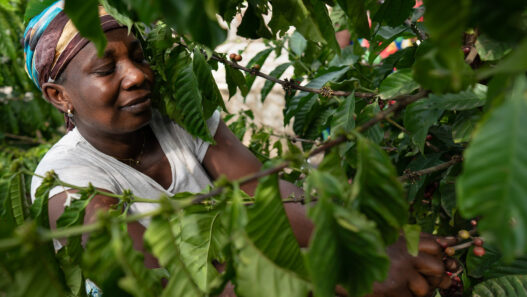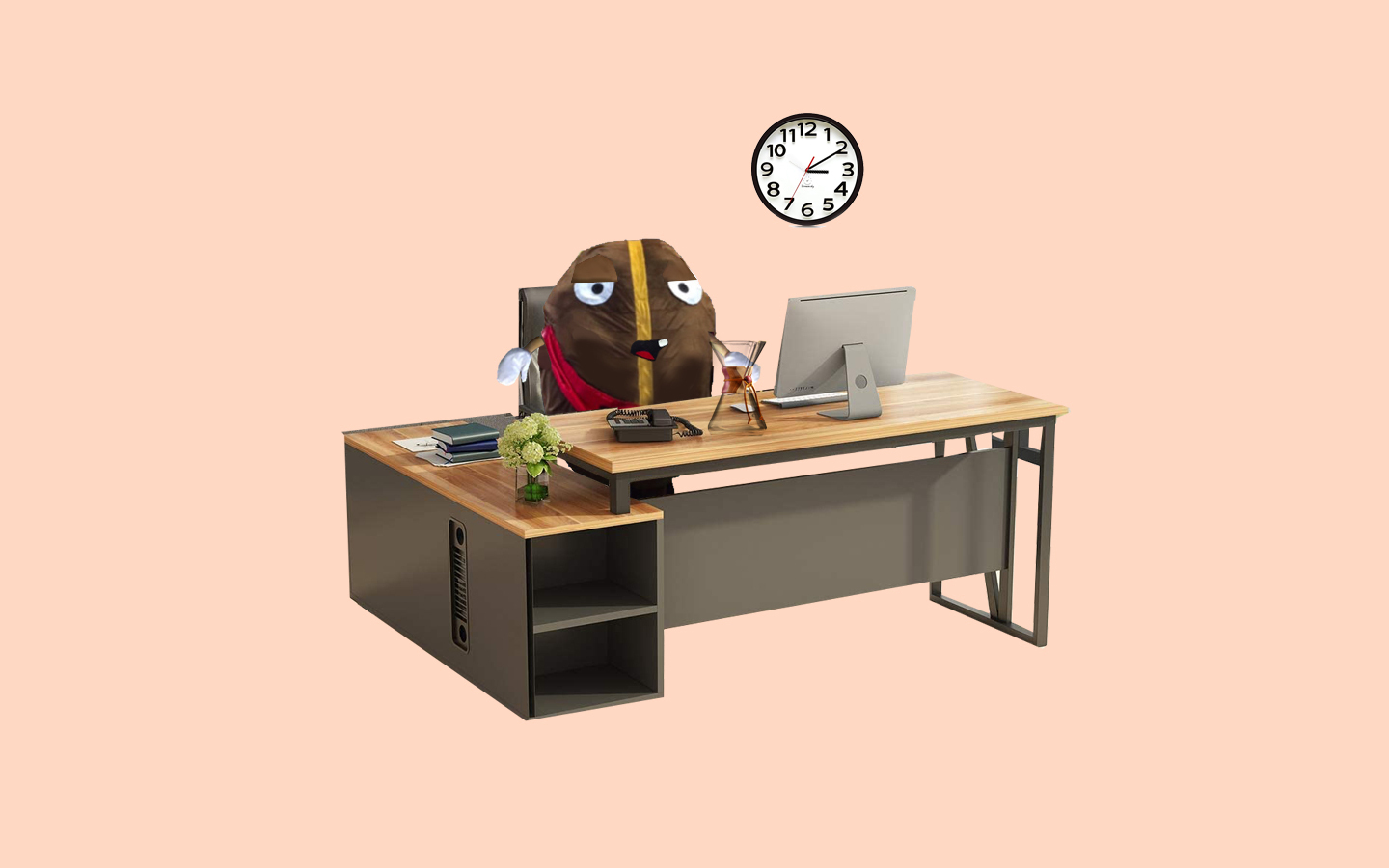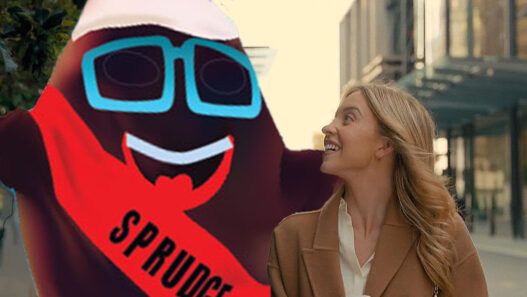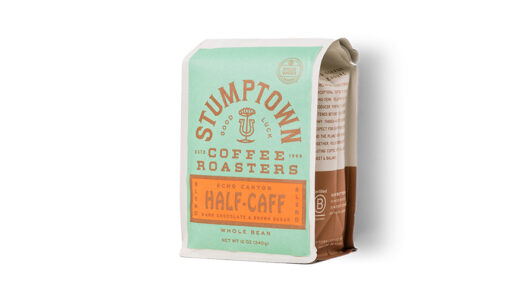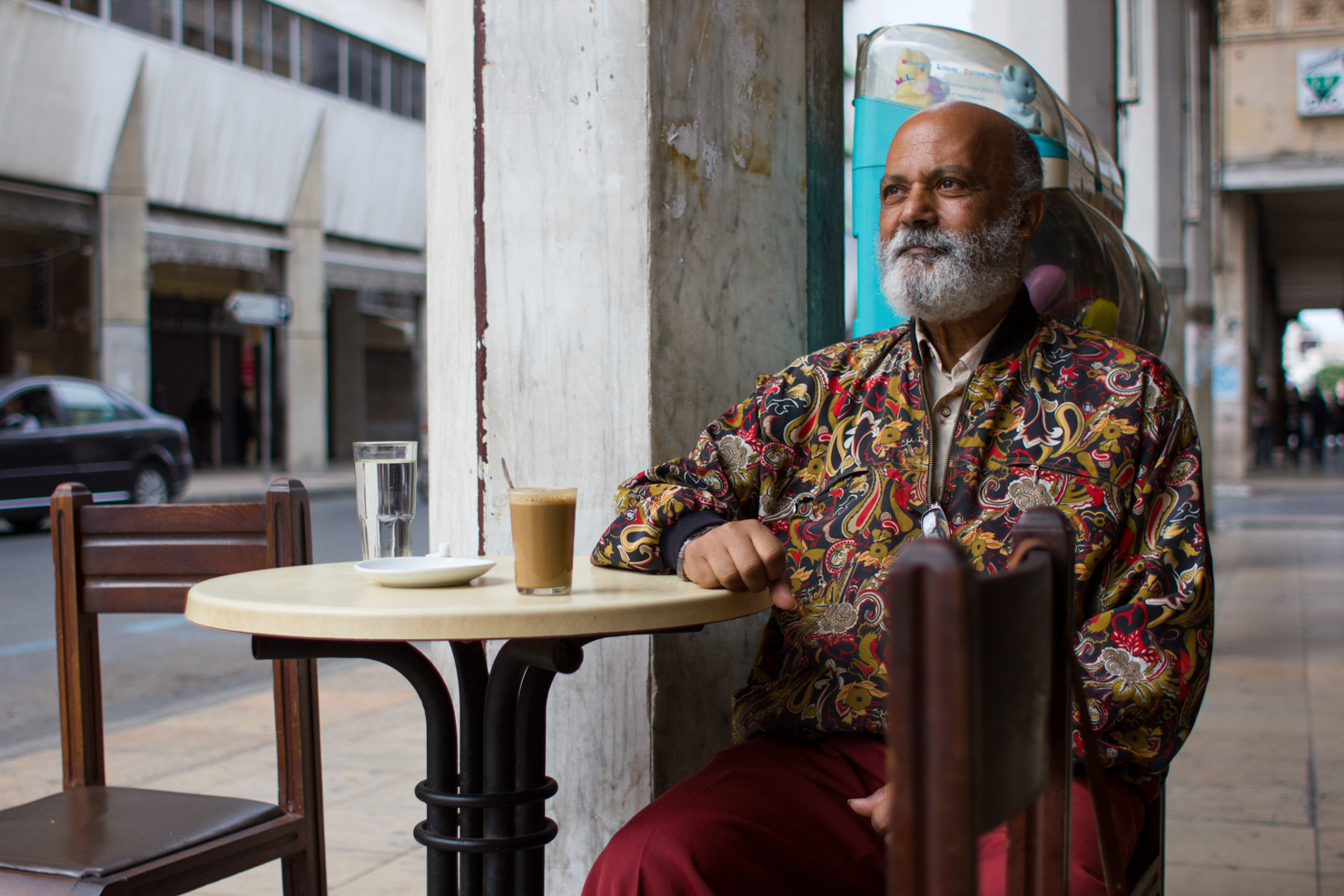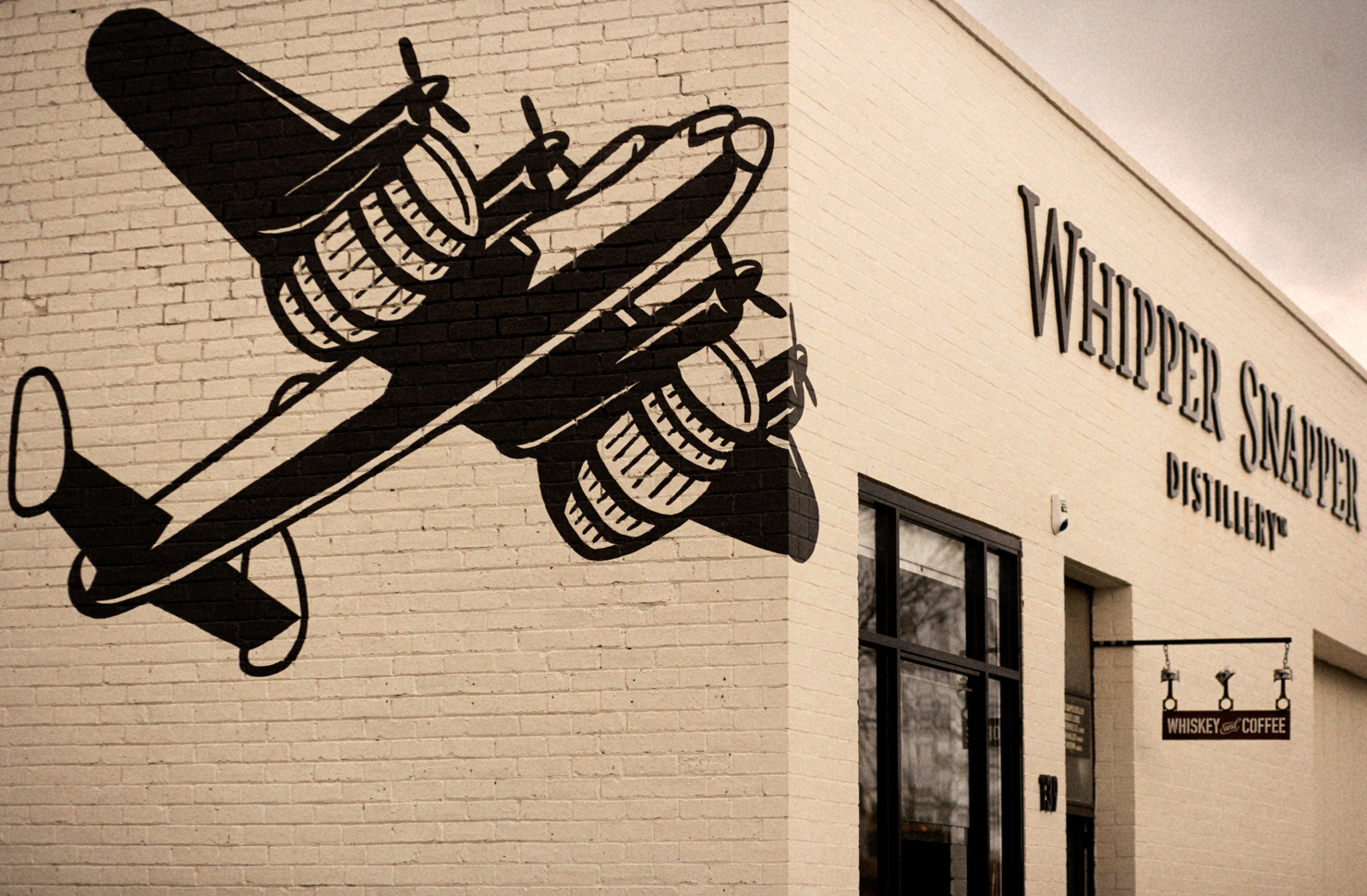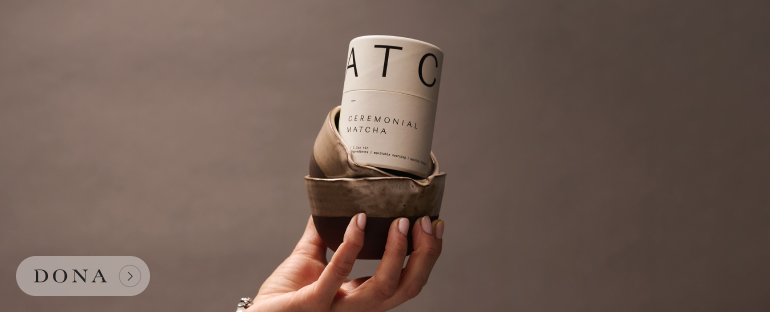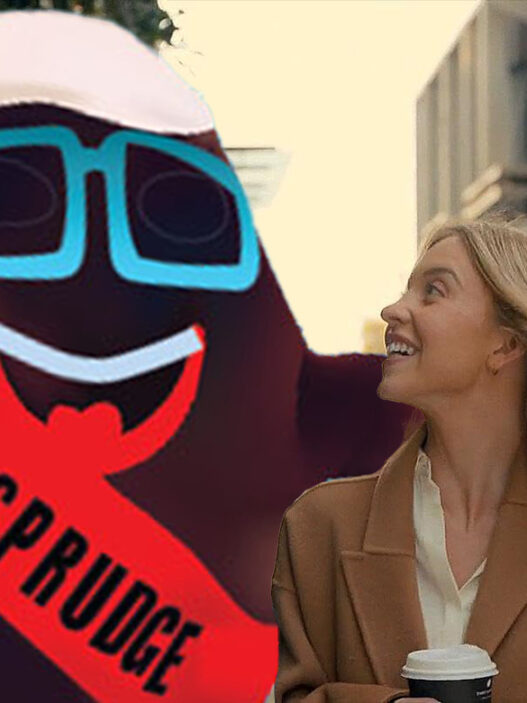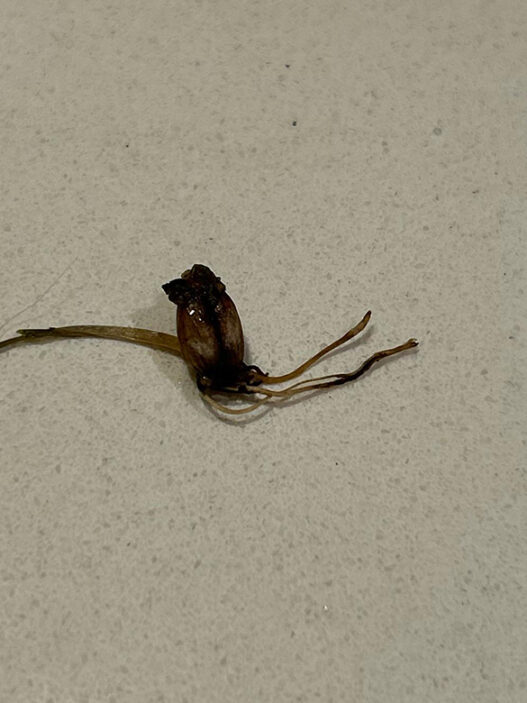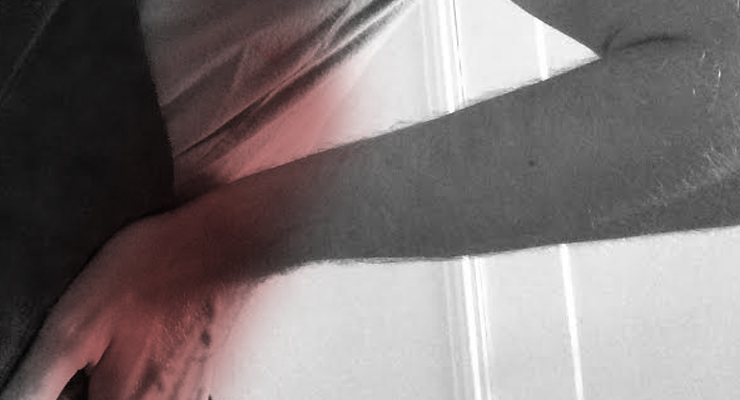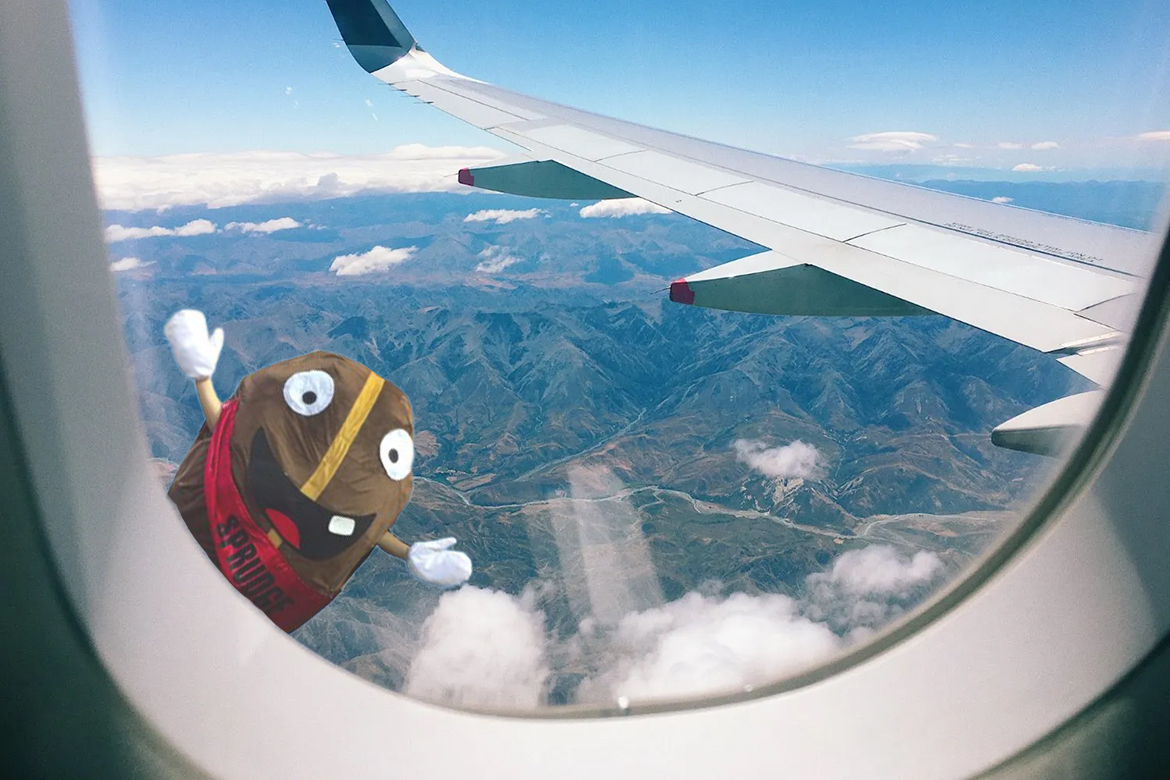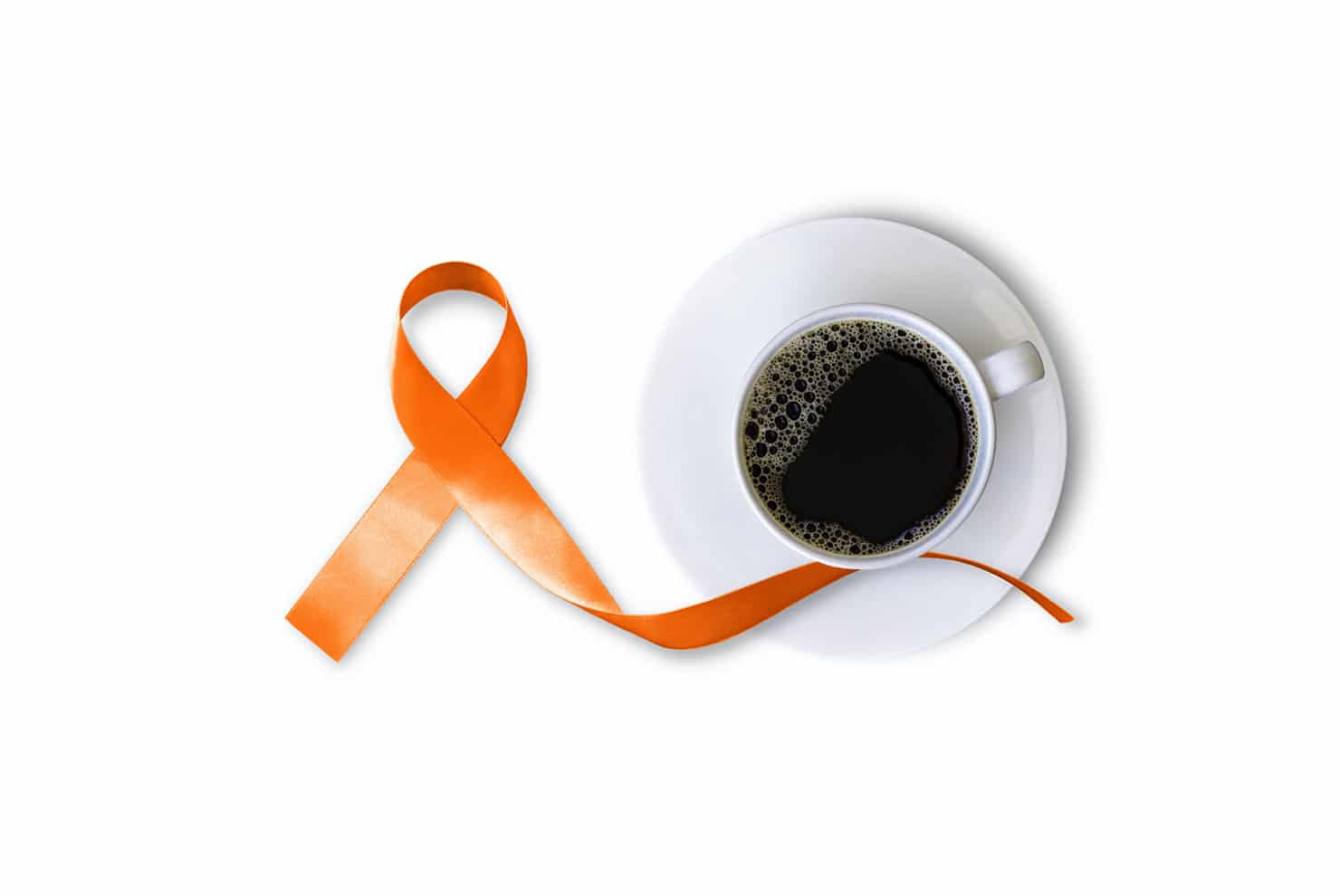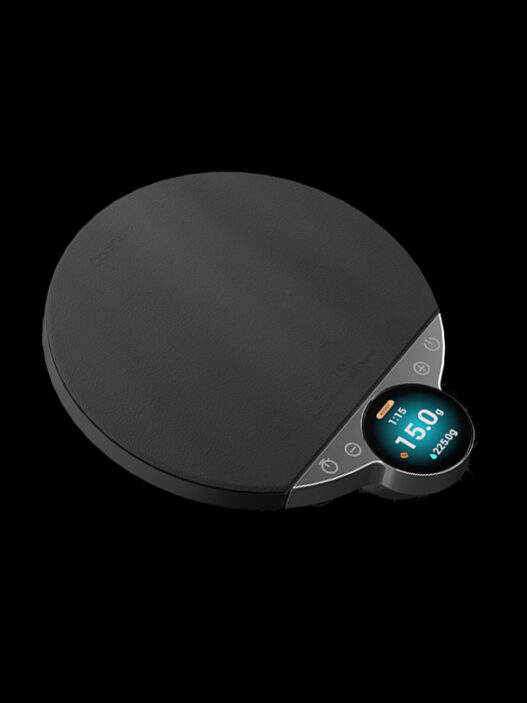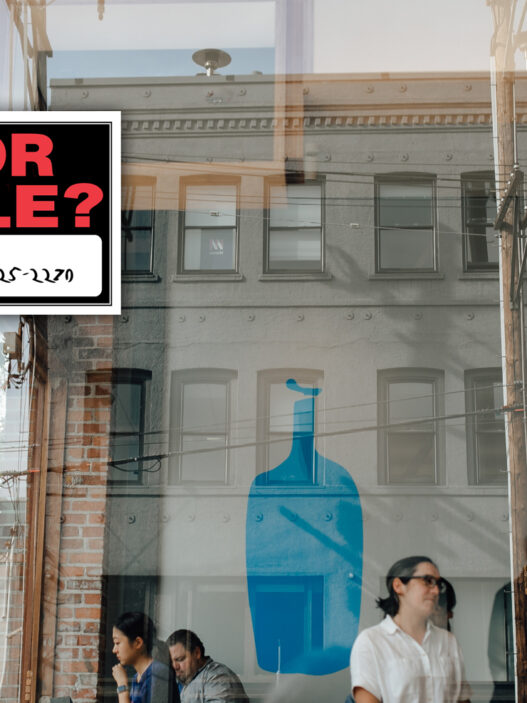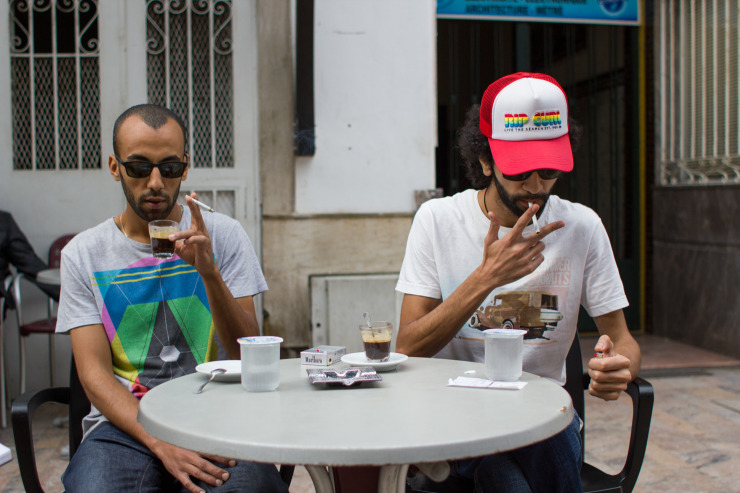
Avenue Mohammed V, City of Rabat, Morocco:
They’re sporting shades despite the lack of sun. Two young, lanky men languidly suck on their cigarettes and take tiny, unhurried sips of espresso. They seem to be paused in the middle of a city moving around them, gazing out at passers by. They have probably been there for several hours already, and don’t appear to have any intention of leaving soon. Aloui Ismail, 27, says he goes to cafés every day “just to sit.” Cafés are an integral part of the Moroccan lifestyle because of the uniquely relaxed, community-focused spaces they offer. Cafés are something like a second home for many Moroccans, and their prevalence reflects a cultural need for the environment they provide—which is more important than even the coffee itself.
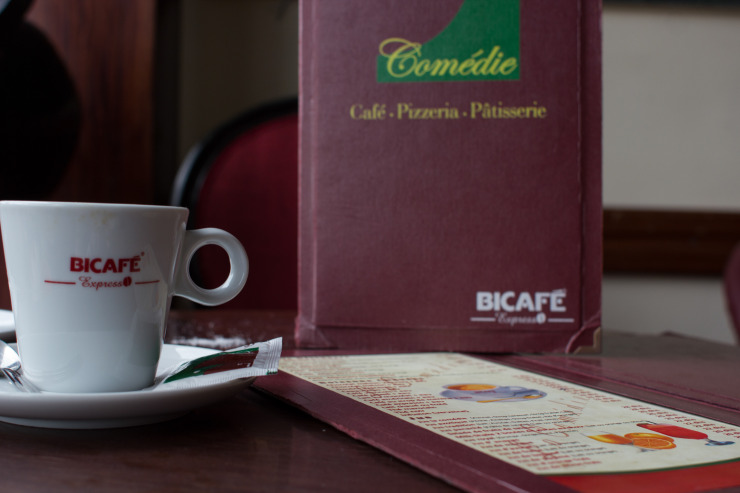
It is almost impossible to walk more than a block in Rabat without finding a coffee shop, and as a coffee-addicted student abroad here, I am intrigued by every mysterious hole-in-the-wall café I pass. Accompanied by another American student, I meet Ismail and his friend Mohamed outside “La Comédie,” one of the biggest and most welcoming cafés at the downtown’s epicenter. It boasts contemporary décor, a regular clientele and tables bazaf (a favorite Moroccan Arabic word meaning “a ton”). Displaying typical Moroccan friendliness, Ismail overlooks the fact that we are complete strangers, and tells us right away that even though “Morocco is diverse, [and] everyone interacts differently with coffee,” everyone here needs cafés.
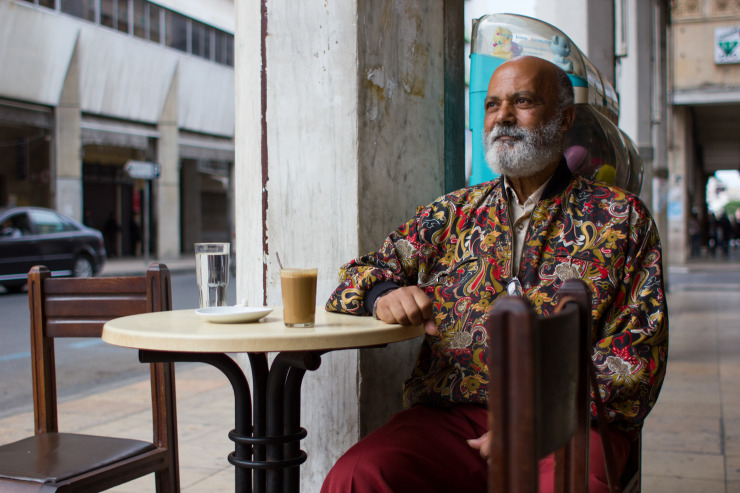
We wander through La Comédie’s pastry shop and follow the lit up sign for the “Salon de Thé” (tea lounge) to the second level, hoping to hear more from the true voices of a Moroccan café: its employees and regulars. In between dark red plush chairs and small two-person tables, we find a free waiter. He seems rather shocked that we want to talk to him, but gives us a confused, crinkled smile, wipes his hands aimlessly at the coffee stains on his apron, and agrees to sit down with us for a few minutes.
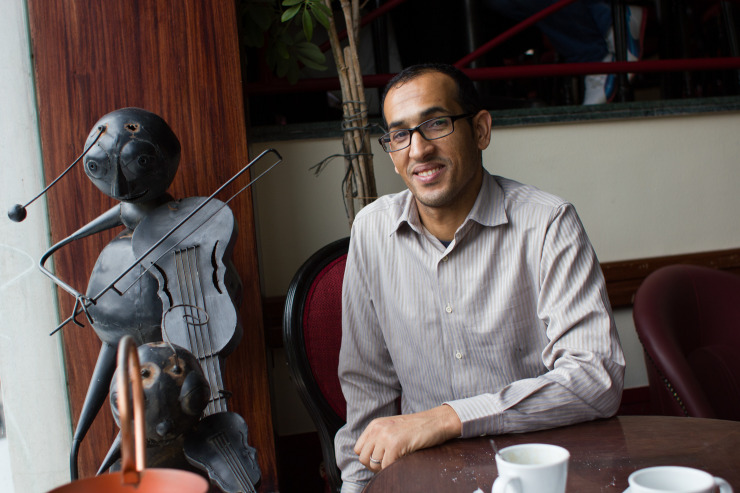
Hamid Ayachi, 34, has worked at La Comédie for five years. He says he says he has seen all types. He breaks it down by time of day: first, those with “important, administrative jobs” show up. Late morning brings those who are unemployed, who stay until the busy lunch hour. After lunch many couples show up—a modern café like La Comédie is one of the few places unmarried women and men can interact in public. The evening is busiest because everyone comes after work to watch the soccer games, play cards, and “pass the time.” One might stay half a day, perhaps all morning, and not be bothered, and it’s quite a feat to find a place that stocks to-go cups. (I once asked for coffee to go and was handed an espresso shot in a small plastic water cup, which promptly melted).
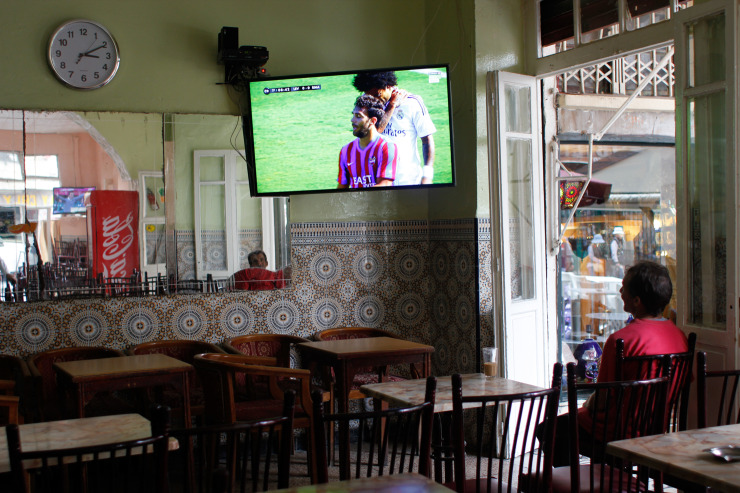
Ayachi agrees that cafés are for everyone: “There is nowhere else to go. When there is nothing else to do, you go to a café. Every day we must go…it’s like a drug,” he laughs. And he isn’t talking about an addiction to caffeine. The most common drink by far is straight espresso, which they call “café normale” or “café noir” (black coffee). It is served in a clear glass teacup with a side of water and 2-3 sugar packets, which are almost always generously dumped into the drink. The menu also offers traditional mint tea and café au lait (which is really a latté, not the black coffee topped with a splash of steamed milk that I know and love).
But despite the popularity of espresso, the quality and type is paid very little attention to. This veteran waiter has to think a while before he even remembers the type of espresso bean he uses (made by Bicafé). But it doesn’t seem to matter to most Moroccans. Cafés are an even playing field. Socioeconomic status, illiteracy, appearance, marital status—all of these factors that are generally highly charged in Moroccan life are rendered irrelevant in a café. Coffee is cheap (an espresso shot or latté generally costs less than one US dollar) and you can stay for hours without being expected to buy another.
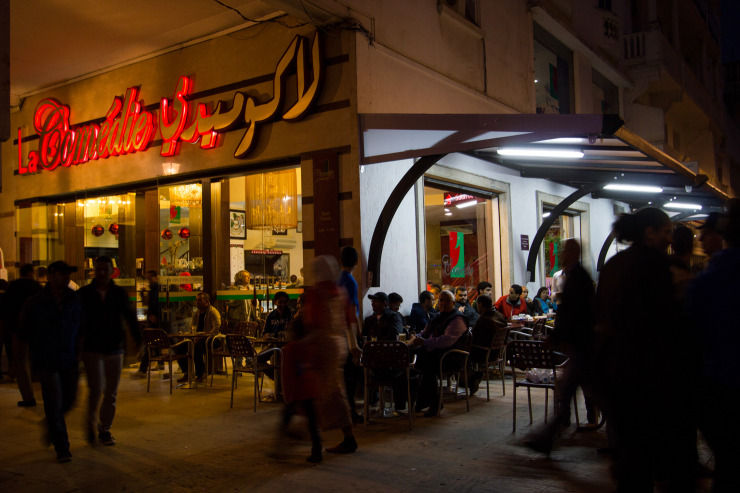
As night falls, La Comédie lights up and buzzes with voices, and tables become harder to find. Patrons leave the stress of a long day at work or the restlessness of unemployment at the entrance and find respite in the solidarity of the café. Nisrine Attbar, 29, looks forward to “enjoying the moment you can only have in a café.” She often sits without talking, reflects, and watches the people on the streets—“you cannot have the same moment in your [home].”
An earlier comment from Ismail reflects the same sentiment: “Coffee is just a moment where I can think about stuff in a very short time, smoke 2 or 3 cigarettes.” Here in Rabat, time is paid little attention to—what is valued is the kind of moment, whether it lasts a few minutes or several hours, that can only be found between sips of coffee.
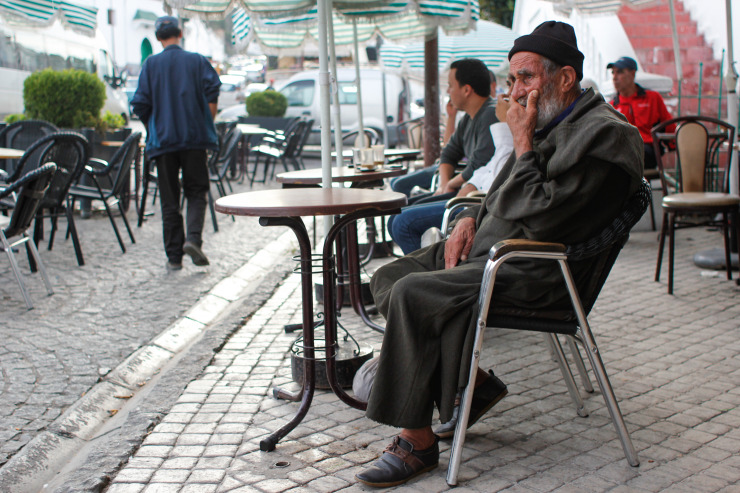
Emily Pfoutz is a Wesleyan University student studying abroad in Morocco. This is her first piece for Sprudge.com
Photos by Hannah Norman.




